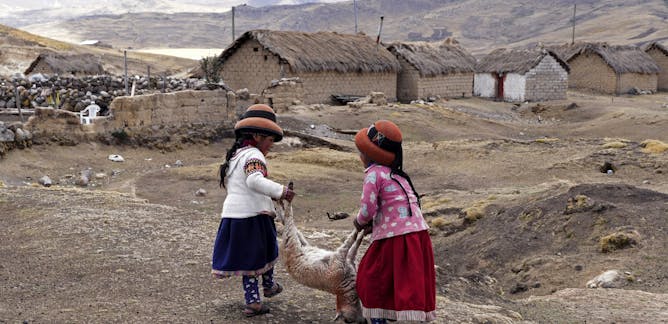
Articles on UNFCCC
Displaying 1 - 20 of 73 articles

Girls bear the brunt of the climate crisis. It’s time we bring them to the centre of international climate policy.

COP28 had almost 100,000 delegates, most of whom weren’t involved in the negotiations.

Climate finance can help developing countries adapt to climate change and phase out their emissions.

An expert in climate justice reports from Sharm El Sheikh.

COP27’s agreement on observing the oceans sets a strong foundation for policymakers to invest in internationally linked observation that will help countries better monitor these carbon sinks.

Stronger pledges, more climate finance, and payments for loss and damage.

Fossil fuels were named as the problem at COP26. We’re no closer to eliminating them a year on.

A key issue for African countries is: how to contribute towards averting a climate disaster without compromising economic growth and development.

Remember hearing about COP26 in Glasgow last year? There’s a lot at stake in this year’s climate summit, so here’s your essential guide to prepare.

War, famine and an energy crunch are affecting the world’s response to climate change, but there are reasons for optimism.

A global treaty on plastic pollution must incentivize a take-make-reuse waste management system and include quantitative targets based on geography-specific emissions.

Strengthen commitments to reduce emissions by 2030, redouble efforts to raise climate finance and junk fossil fuel subsidies.

Loss and damage – the three words which define the Glasgow summit’s disappointing outcome.

COP26 saw incremental progress but not the breakthrough moment needed.

Uncertainty about carbon market rules will be problematic for New Zealand, given its reliance on overseas carbon trading to meet its new climate pledge.

In Paris, the French drafted ambitious texts and dared the biggest emitters to oppose it. In Glasgow, it’s the least developed countries which will have to do the most work.

Climate justice is about both where emissions come from and who suffers the consequences.

If you haven’t been paying attention to the UN climate summit in Glasgow, catch up here.

Pacific nations look to New Zealand for climate leadership. It has enshrined carbon neutrality by 2050 and a 1.5°C target in law, but, so far, emissions have continued to rise.

A former UN adviser explains what happens at climate summits like COP26 and why people fear this one won’t meet its goals.
